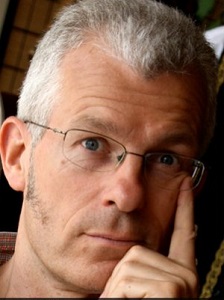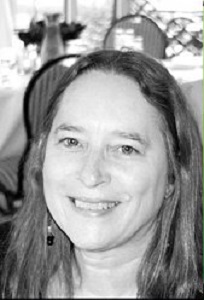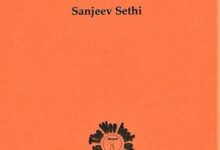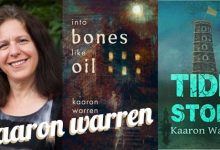Interview with award winning author, Samit Basu
It has been an honor getting the chance to interview Samit Basu for this Featured Guest Interview. Samit writes books, comics, and films. He’s written several books, including the Gameworld Trilogy, and The Adventures of Stoob: Testing times. His novel Turbulence won Wired’s Goldenbot Award in 2013 and superheronovels.com Book of the Yearin 2013. Samit is also involved in comic writing. His latest graphic novel, Local Monsters was published in 2013. The work he has done through his craft has gained worldwide success that is well deserved.
Without further delay, check out this humble and insightful interview with Samit Basu!
Allysan asks: At what age did you realize your passion for writing?
I don’t remember a time when I wasn’t writing, or devouring stories in any form available to me; I don’t think it was something I ever really thought about. The decision to actually do something about it, make it something much more central to my life, came in a slightly more dramatic fashion, because writing for a living just wasn’t something you did if you were a middle-class person growing up in India. I think I was about 21 when I realised that doing the should-do thing, which at the time, was going to business school, just wasn’t for me. That was when I dropped everything else and wrote my first novel.
Did being listed in the magazine, Outlook, as one of India`s 16 achievers under 25 give you more drive and determination?
I think the drive and determination to write, or create, is largely internal: any sense of achievement, whether it’s a good review, a bestseller listing, a prize, or any other sort of external validation, is wonderful, of course, but more as a ‘I’m so pleased this happened’ moment rather than a source of motivation in itself. At least that’s how I feel about it.
But that said, that Outlook listing was and remains very special. It was right around the time when my first novel was published, and it felt unbelievable, largely because India’s such a big country. I think it was the first sense of having accomplished something of a certain significance to the outside world.
Which do you prefer? Book, comic, or film writing and why?
Books. Each form of writing is special and interesting and challenging in its own way, but books give you that Spiderman dual-bonus of power and responsibility. It’s the only medium where you’re in absolute control over the work, which means that it can be everything you want it to be. Collaboration is great fun too, and it’s lovely watching a story become greater than the sum of its parts, but if I ever have to choose a single medium, it would be prose.
What are some differences or difficulties you’ve experienced switching from book writing to comics to film?
When you’re writing a book, you don’t have to think about external things like budgets and production-friendliness (film) or artist schedules (comics). But the key differences and difficulties are actually in the writing itself – both comics and film are visually led, whereas when you’re writing books you can tell the story in any way you want. Writing comics teaches writers a lot about precision, structure, and choice in terms of key frames of the story you want to tell – the narrative moves differently. What you can see becomes all-important. Transitioning from comics to film writing is less challenging as an internal process, and I think the key difference is learning what visuals it’s feasible to have without causing producers anxiety attacks.
Do you have a particular writing process you adhere to or does it vary from project to project?
It varies entirely from project to project. But no matter what the medium, I like to research first, outline carefully next, do another round of research, and then write the whole thing start to finish.
Is there a special place you settle in to help focus during the writing process?
I can only write well in familiar places, so that whole cafe/exotic vacation writing dream is dead as far as I’m concerned. I don’t really have a writing ritual, or a particular environment that I’m very fussed about, and I’ve learned over the years to not get frustrated on days when I either can’t write or the words are all terrible – it’s all part of the process. I recently bought a small flat in Bombay, with a nice view of the sea and a well-designed writing area. I haven’t written anything there as yet because I end up staring at the sea. But it’ll come together at some point. It is very difficult to retain focus in the world that we live in now, but it’s important to remember that that’s perfectly natural, and using windows of focus as patiently and efficiently as you can will get you somewhere.
How do you manage to be columnist, screenwriter, filmmaker, journalist and blogger when there are only seven days in a week and how is the time divided up?
I certainly don’t do all of these things at the same time, and I’m not as efficient at any of these things as I would like to be. But given the various challenges of every creative field, I think that if you’re trying to tell stories for a living it’s important to diversify your skill-set as far as possible. Each of these processes is frustrating in its own way, and the actual work is a very small part of the whole endeavour. My physically fit friends tell me it’s important to exercise different muscle groups, and change your routine every now and then to make sure you don’t stagnate. I do stagnate often and enthusiastically, but learning how to do different things is exciting and fun. That said, I think I spend far more time watching things, reading things, and just wasting time on the Internet than I do actually creating. If you file it all under ‘research’ then there’s a ready-made excuse to waste time, and I encourage you to do this as much as possible. Once something becomes your job, it becomes more and more difficult to enjoy. So it’s important to do whatever you can to ensure your relationship with writing stays happy.
What brought about your inspiration for Stoob? Do you feel you relate to the character at all?
Some of it is distant memories of school and friends. A lot of my closest friends also have kids around that age, and their stories about school are most entertaining. A lot of my favourite stories growing up were school stories as well, and so a school series has always been on my want-to-do list. It was nice not having to come up with labyrinthine plots, fresh action scenes and ingenious solutions to save the whole world. And to write short books – a Stoob book is about one-seventh the length of my first book. I relate very strongly to the character – it’s mostly me.
PrinzeCharming asks: If you could be Stoob for a day, what would you tell yourself as the author behind Stoob?
That’s a very meta question. If I were Stoob, and a stranger in their thirties offered me advice I pretty definitely wouldn’t take it. But if I ever met Stoob, I would tell him to make sure he enjoyed himself as much as possible and made as many friends from as widely different a set of people as possible.
Allysan asks: What inspired the fantastical world of the Gameworld trilogy?
I was 22, and I wanted to write a really big book full of really exciting and large ideas. You’re supposed to write about what you know, and I didn’t think my own life or world at that point was particularly interesting – part of this was a lack of perspective and part of it was cultural conditioning, I think. Most of the worlds I found myself deeply interested in were fictional – mythology, literature, history. Gameworld started out as a project where I brought many fictional worlds together, tied together many classic stories and found new characters and places that I grew to love. Terry Pratchett’s Discworld books were probably the most important influence for the first book of the trilogy, though I wanted my world to be less Eurocentric and much more international and diverse.
What was the inspiration behind your recent book Resistance?
It was the sequel to Turbulence, and is set in a world where some people have, in waves, acquired strange physical abilities that correspond to their innermost desires. Turbulence was set in the summer of 2009 in India and the UK, and Resistance is set all over the world, mostly in a future (2020) Tokyo and New York. What inspired that specific time-place combination was a desire to see what havoc superhero powers across the globe could wreak on the world in 11 years – it proved to be a greater challenge than just following the same characters immediately after the events of Turbulence, but it was also more fun from a worldbuilding point of view.
Which of your series did you have the most fun with?
My first series, Gameworld, a fantasy trilogy. I think (I hope) the writing’s gotten better as I’ve aged, but the sheer joy of discovery when you’re starting out is the most fun. There are actually so many aspects to enjoy about writing that it’s difficult to decide which the most fun is. But I’ve been saying Gameworld as an answer to this question down the years so I’ll stick with that.
Turbulence was introduced to the west in 2012. How did you feel about this and has it altered your approach to writing?
I’d always wanted to write a book that crossed over. I was overjoyed when it finally happened. I’ll list the reasons very briefly:
-I wanted to see how people around the world responded to my work.
-I wanted people who were very familiar with the genres I was reading to read my work because they’d actually have a more relevant set of things to compare it to.
-I wanted to do book events in the West, and meet writers I’d always admired but had lived half a world away from. This was a wonderful experience
-I wanted to be reviewed by reviewers who understood the space I was writing in.The genres I’ve written in don’t really exist in India. So to be in publications where I’d only read reviews of authors I admire before was amazing.
How well received have your stories been in India vs. the UK and US. Is it about the same or does it vary across the board?
I’ve been lucky. They’ve been received very well by critics in all these countries. The UK/US critics have been more genre-aware, and the Indian ones have seen it through a more Indian-literature lens. But I’m happy to say the critical response has been fabulous. Sales-wise, again, I’ve been lucky enough to be in Indian bestseller lists a number of times.
Aquilo asks: Would you consider you have an insight, or understanding, of two different cultures and how do you incorporate this in to your work?
I don’t claim to understand any culture. I think if I were to generalize broadly, there are two cultures I can begin to understand – one, the global culture that’s emerging, largely over the Internet, where we all watch the same things at the same time and have common frames of reference in terms of the news, entertainment, and a certain Internet language; two, an urban Indian mindset, but even there I’m limited to ‘getting’ people who grew up in the same time as I did and had the same sort of education. There are people who live two houses away from me who I couldn’t even begin to understand, and people in countries where I’m probably never going to go with whom I could have immediate conversations over the Internet where we understand each other perfectly. Books travel further than people, though, and a lot of readers I’ve met or corresponded with down the years are people who’ve chanced upon my work but who I’d be completely unable to communicate with regarding any aspect of their everyday lives.
Aquilo asks: When you were growing up was there much support for young writers in your community? What difficulties or obstacles did you face?
There was none, because being a writer in English was not something you did in India unless you were part of a very, very small community who were already global citizens, and I was not. I didn’t have any access to a writing community in any other Indian language. In fact, I only met other writers after I was published. Doing the kind of writing I do, I’m caught between worlds – there isn’t a local community of writers with shared interests (though there is on the Internet, I suppose), and I don’t really fit into the Indian literary-fiction scene, though I know everyone there and they’re all really nice people. But it’s a social community for me, not a writing one. I did a book tour in the UK for Turbulence, and I found I fitted into that writing community far more easily, speaking in terms of shared reading interests.
How much/little do those difficulties influence your writing today? Do you support any projects that aid young writers?
They don’t, really. Any difficulties I face are difficulties that can be dealt with, given enough patience, work and luck – at least that’s what I believe. It’s difficult for me to complain about my life when I live in a part of the world where people’s basic rights and existence are under threat, though I suppose that could be said about many parts of the world. Of course things could have been better if I’d been in a more convenient place and time – but they could also have been far worse. The older I grow, the luckier I feel in terms of being able to do what I love – the vast majority of people never get to make that choice.
I help young writers get published whenever I can and try to help a few writers with their work. When a community doesn’t exist you have to try to build it.
am_hammy asks: What is your favorite part about writing Graphic Novels?
Watching it come together and be more than the sum of its parts. Writing comics is a fascinating exercise for writers of prose because you have to learn to tell your story visually, spatially, and very economically. So it helps you figure out exactly what needs to be said. Which makes your prose more efficient. My novels have been getting shorter and shorter since I started writing comics. Collaboration is a wonderful thing, and when you find an artist who can take your words and create something bigger and better with them it’s a lovely experience.
GuitarHiro97 asks: When did you get into comics?
Around 2006, I think. Virgin Comics came to India, and since I was probably the best known writer of fantasy in India at that point, they got in touch. I’d been a huge fan of comics/GNs for a few years, so there was no question on missing out on this opportunity.
Are there any comics or graphics novels that have influenced you in your own writing? What are they and why?
Really too many to list. Sandman, Transmetropolitan, Watchmen, Persepolis and Preacher, if I had to name a first bunch of five comics I loved to start with. Oh, and before that Asterix and Tintin as a kid.
How do you create and what makes a good superhero?
This is a separate essay, really, but if I had to narrow it down to one thing I’d say powers and stats are relatively unimportant, unless you can think of a new one, which is going to be tough. What’s much more important is the character, and how he or she fits in the world. Which is true for any kind of story, of course. When I was writing Turbulence, the key mechanic was that each character’s abilities would be related to their deepest desires. Which made the special effects extensions of the characters’ needs, and certainly made my job easier.
What was it like to work alongside X-men and Lucifer writer Mike Carey?
Amazing. I’d been a huge fan of Mike’s before we worked together, Lucifer and Felix Castor. So I knew he was one of the most talented writers around – what I didn’t know was that he was a truly generous, wise and giving collaborator. We met in a person a couple of years after that, at the pub where John Constantine goes to drink. That was fun.
Do you find that characters come to your mind first for graphic novels or the overall concept?
It varies from project to project. It’s usually the overall concept, though the books I’ve written that have been first-person POV have started with the character.
Allysan asks: What advice would you offer young writers who hope to publish?
I don’t know if there’s anything I can offer that they already haven’t heard a thousand times before. I’m about to start my tenth book now, and I still feel like I don’t really know anything. For first-time novelists, though, I would say – your first novel is the only one you’ll get to write without worrying about your career and what your audience wants. So remember to have as much fun as possible, because from the next book on it won’t just be you putting pressure on yourself. Remember that the only writers you read about in big media are the ones who won the lottery, and don’t compare yourselves with them – that way lies bitterness. And please remember that writing about writing on the Internet is not helping your novel at all.
Where can we go to find out more about you and your work?
I think I’m on all the standard Internet places as samitbasu. My website, which I really need to update, is samitbasu.com









